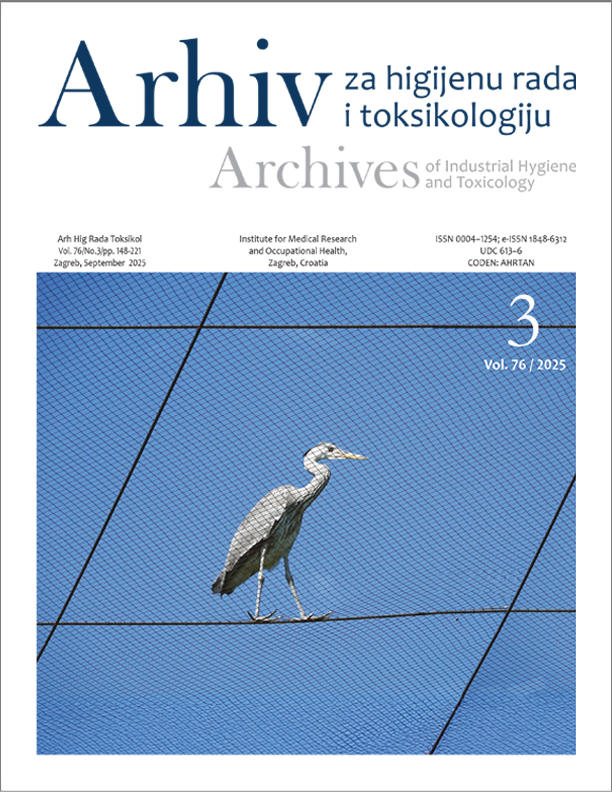Effects of exposure to insecticides on sleep and neurobehavioural functioning in puberty and adolescence: a scoping review
DOI:
https://doi.org/10.2478/aiht-2025-76-4020Keywords:
adolescents, behaviour, carbamates, cognition, emotions, insecticide exposure, neonicotinoids, organophosphates, pubertal development, pyrethroids, sleep qualityAbstract
Insecticides are pervasive in modern world, with humans being exposed through multiple pathways including dietary intake, occupational exposure, farming activities, residential proximity to crops, and household use. Most commonly used insecticides are neonicotinoids, pyrethroids, organophosphates, and carbamates. Recent evidence suggests that even low-level exposure to these substances may have adverse effects. Adolescence, characterised by intensive maturation processes, is a period of heightened vulnerability to environmental toxicants which may increase the risk of suboptimal developmental outcomes. This review aimed to synthesise the evidence of association between insecticide exposure in childhood/adolescence and sleep and neurobehavioural functioning in children and adolescents aged 8–20 years. Literature search across Web of Science, PubMed, Scopus, and PsycINFO produced 1,492 unique records, of which 48 studies met the inclusion criteria and underwent full-text analysis. Nine of the analysed studies investigated occupational exposure. Most employed cross-sectional design. Insecticide exposure was most often assessed through biomonitoring, questionnaires or interviews, temporal or spatial proximity to crops, and environmental sampling. Occupational exposure studies were primarily conducted in Africa, whereas non-occupational studies were mostly based in the Americas, Asia, and Europe. Cognitive functioning was the most evaluated aspect of neurobehavioural functioning, while sleep was assessed only in one study. Although the findings are heterogeneous, they suggest that both work-related and residential exposures may affect neurobehaviour and sleep in puberty and adolescence. However, further longitudinal research is needed to clarify causation and also incorporate sleep health and pubertal maturation into the design, both as outcomes and mediators of neurobehavioral effects.
Downloads
Published
Issue
Section
License
Copyright (c) 2025 Patricia Tomac, Adrijana Košćec Bjelajac, Ivana Hromatko, Veda Marija Varnai

This work is licensed under a Creative Commons Attribution 4.0 International License.














